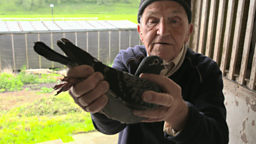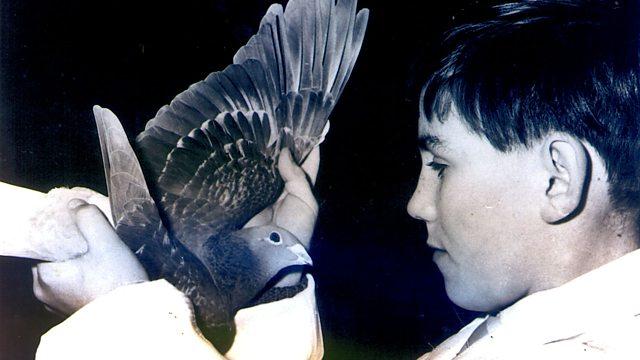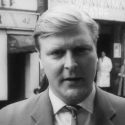Pigeons were described in this riveting programme as man’s best feathered friends, as well as an urban pest: the 35,000 of them that used to flock round Trafalgar Square deposited some 390 tons of unharvested guano – bird poo, in simpler words – annually that had to be cleaned up, until bird feeding was banned. Mess and noise made the same bird, so loved by pigeon fanciers, into dreaded flying rats, a leading public menace.
But pigeons, like rats, are infinitely adaptable, hence their remarkable survival, underlined by an amazing capacity to breed. And until the 1840s, when the telegraph was invented, pigeon post was profoundly significant, carrying urgent messages in both war and peace, providing rapid and reliable communication. The homing pigeon has some sort of global sat nav in its head which no scientist has yet been able to figure out. Racing pigeons can do 600 miles in 15 hours, equivalent to a 40 mph road trip from London to Berlin – without a map.
The affection felt for the pigeons we saw here was almost an obsession
By the 1850s the working bird of the pigeon post had become a sporting bird: it was a working-class sport, its origins in mining communities, for fanciers who spent their working days in darkness down the pits, but were well paid for working men (it is a costly sport). The affection felt for the pigeons we saw here was almost an obsession, and the absorbing hobby has rules and rituals. Pigeons, it seemed, were friendly, happy, curious, helpmates and companions. By the 1880s Sandringham had its pigeon coops, and the Queen is a fancier.
Pigeon racing is an extraordinary sport, exclusively male: wives are known as "pigeon widows". In the 19th century the fancier walked just a few fields away to release the birds to race. Then came trains – and now lorries – carrying these avian athletes bred to race far further away. Pragmatically, cocks and hens travel in separate coops to prevent squabbles and distraction. Releasing pigeons to start the races has its own soundtrack, the susurration of their wings as they fly into the sky, with much pigeon talk – and beer – following in the pubs whilst awaiting their homecomings.
 In the wars of the 20th century pigeons came back to work. Hundreds of thousands were deployed in World War One, 90% reliable as messengers, in military units known as the “Pigeoneers”; 150 birds could be carried at a time in moveable lofts, some converted double-decker buses. In World War Two pigeons were again part of the war effort: a pigeon parachute was invented so that the birds could be deployed from planes to reach targeted members of the resistance, spies or secret agents to get information, including film, back from occupied Europe. The birds saved lives: one, Winkie, made a 120-mile journey from a plane that had downed in the sea to get help for the survivors. The Dickin medal was created to reward animal bravery in the war, and as a pigeon patriot told us, its 65 recipients include one cat, three horses, 29 dogs, and 32 pigeons, including Winkie; the medal, together with Winkie (now stuffed), is displayed in a museum in Dundee.
In the wars of the 20th century pigeons came back to work. Hundreds of thousands were deployed in World War One, 90% reliable as messengers, in military units known as the “Pigeoneers”; 150 birds could be carried at a time in moveable lofts, some converted double-decker buses. In World War Two pigeons were again part of the war effort: a pigeon parachute was invented so that the birds could be deployed from planes to reach targeted members of the resistance, spies or secret agents to get information, including film, back from occupied Europe. The birds saved lives: one, Winkie, made a 120-mile journey from a plane that had downed in the sea to get help for the survivors. The Dickin medal was created to reward animal bravery in the war, and as a pigeon patriot told us, its 65 recipients include one cat, three horses, 29 dogs, and 32 pigeons, including Winkie; the medal, together with Winkie (now stuffed), is displayed in a museum in Dundee.
Facts there were aplenty, both alarming and encouraging. The number of pigeon fanciers is in decline today – facing issues of cost, commitment and lack of space, not to mention the complaints of neighbours – and the average age of pigeon keepers in the UK is now 65. The film’s most extreme sequence showed us outlandish birds, the result of genetic tinkering, including non-flying pigeons that can only roll on the ground (but do so competitively). Surprisingly pigeon racing has become international, expanding into Eastern Europe, the Southern Mediterranean and even China, where the average age of pigeon fanciers is from the late teens to early twenties. Gambling on pigeon racing is legal outside the UK and can bring considerable rewards.
At home, the obsessive devotion of the remaining pigeon owners to their charges was surprisingly affecting. For pigeon fanciers the motto remains: patience plus purpose equals pleasure. Jake Hayes and Merryn Threadgould’s film, endearingly narrated by Miles Jupp, got us looking up at the sky, away from our pigeon pie.















Add comment